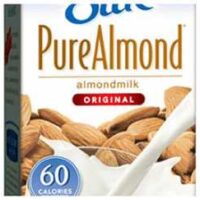In recent years, the landscape of our grocery aisles has been quietly but significantly altered. A new player has entered the dairy section: synthetic GMO dairy products. This emergence is not just a minor shift in food technology but a fundamental change in what we consume. Across the globe, genetically modified organisms (GMOs) have stirred controversy and faced bans in nearly 20 countries, spanning Europe, Asia, South America, and parts of Canada. Yet, despite these widespread apprehensions, genetically altered dairy products are making their way into our stores and homes.

A notable example is the company Perfect Day, which has pioneered the use of 3D printed milk proteins for creating these synthetic dairy items. Their approach, which they term ‘precision fermentation’, is a sophisticated form of genetic engineering known as ‘synthetic biology’ or ‘synbio’. These 3D printed GMO proteins have recently found their way into popular ice cream brands, often without any clear labeling to inform consumers.
The introduction of these products raises profound questions. What are the implications of consuming such radically altered food items? The non-profit organization GMO Free USA has been vocal about the potential risks, highlighting the lack of premarket safety testing and the absence of mandatory GMO labeling. Their concerns are not unfounded, considering the discovery of numerous unknown compounds in these synthetic milk products, compounds whose safety profiles are yet to be thoroughly evaluated by regulatory bodies like the FDA.
As we stand at the crossroads of this new food technology, it’s imperative to examine what’s at stake. This article aims to shed light on the critical aspects of synthetic GMO dairy products, urging consumers to be vigilant and informed.
Understanding ‘Synthetic Biology’ and ‘Precision Fermentation’

When we talk about synthetic GMO dairy products, two key terms often surface: ‘synthetic biology’ and ‘precision fermentation’. But what do these terms actually mean, and why should consumers be wary?
Synthetic Biology (Synbio):
This is a radical form of genetic engineering. Unlike traditional GMOs, where genes are modified or transferred between organisms, synthetic biology involves creating entirely new genetic sequences. This technology is employed to produce synthetic milk proteins, but the extent of its ramifications on health and the environment remains largely unexplored.
Precision Fermentation:
This process is used to manufacture these synthetic proteins. Companies like Perfect Day claim that this technique is more sustainable and ethical than traditional dairy farming. However, this narrative overlooks critical aspects. Precision fermentation operates in a regulatory gray area. The lack of stringent safety tests and the absence of mandatory GMO labeling means consumers are often in the dark about what they are consuming. Furthermore, the term ‘precision’ can be misleading, as it implies a level of control and safety that may not fully exist.
Concerns Over Unknown Compounds
The most alarming revelation comes from the research conducted by scientist John Fagan, PhD, which found 92 unknown compounds in synthetic milk. These compounds, created as a result of this novel genetic engineering, have not been studied extensively for their safety. The lack of transparency and regulation around these products raises legitimate questions about their potential impact on health.
By cloaking these practices under the guise of innovation and sustainability, companies may be sidestepping crucial ethical and safety considerations. Consumers are left wondering: Are we the unwitting participants in a large-scale, unregulated experiment?
Identifying Brands with Synthetic GMO Ingredients

In a market where transparency is already a concern, the introduction of synthetic GMO dairy products further complicates the landscape. Several brands have begun incorporating these ingredients into their products, often without clear labeling to alert consumers. This section provides a crucial guide to some of these brands, underlining the need for vigilance while shopping.
Brands to Watch Out For
- Brave Robot Ice Cream: Known for its range of flavors, this brand utilizes synthetic milk proteins. The lack of explicit GMO labeling can lead to consumers inadvertently purchasing these products.
- Nick’s Ice Cream and Cool Haus: These brands have also embraced synthetic dairy proteins. The presence of such ingredients in products traditionally perceived as natural raises concerns about consumer deception.
- Strive and Bored Cow: These brands market their products as alternatives to traditional dairy, yet they contain synthetic proteins whose long-term health impacts are unknown.
- Cowabunga and Whey FWRD: These products, which include synthetic whey protein, exemplify the creeping inclusion of GMOs in diverse dairy alternatives.
- JuiceLand Smoothies and Apollo: These brands, offering smoothies and milkshake proteins, highlight the infiltration of synthetic GMOs into a broader range of products beyond just ice cream.
- Modern Kitchen and Nurishh: These companies, producing items like fake cream cheese, demonstrate the expanding reach of synthetic biology into various dairy alternatives.
- Renewal Mill and CO2COA: With products like vanilla cake mix and chocolate bars incorporating fake egg and milk proteins, the spectrum of GMO-infused products is widening.
The core issue with these products isn’t just their GMO content, but the lack of clear labeling. Consumers have the right to know what they are eating and feeding their families. The absence of mandatory GMO labeling on these products is not only a matter of health concern but also an ethical issue, raising questions about consumer rights and corporate transparency.
Ethical, Environmental, and Health Implications of Synthetic GMOs
As synthetic GMO dairy products increasingly find their way into our diets, it’s crucial to consider the broader implications of this technology. This section delves into the ethical debates, environmental concerns, and potential health impacts associated with these products.
Ethical Considerations
The use of synthetic biology in food production raises significant ethical questions. The primary concern is the lack of informed consent – consumers are often unaware they are consuming these products due to inadequate labeling. This lack of transparency violates the fundamental right of individuals to make conscious choices about their food.
Environmental Impact
Proponents of synthetic GMOs argue that these products are more sustainable than traditional dairy farming. However, this perspective is oversimplified. The environmental impact of these technologies is not fully understood, and the long-term consequences remain a matter of debate. The production processes involved in synthetic biology could have unforeseen ecological impacts, highlighting the need for comprehensive environmental assessments.
Health Concerns
The introduction of novel compounds through synthetic GMOs poses potential health risks. The discovery of 92 unknown compounds in synthetic milk is a startling example. The long-term health effects of consuming these compounds are unknown, and the absence of rigorous premarket safety testing is alarming. This situation raises questions about the adequacy of current food safety regulations in addressing the challenges posed by these new technologies.
The Need for Caution and Research
Given these ethical, environmental, and health considerations, a cautious approach is warranted. There is a pressing need for more research to understand the full implications of synthetic GMOs in our food system. Until such time, it may be prudent for consumers to approach these products with caution and for regulators to reevaluate the current frameworks governing GMOs in food.
Practical Tips for Consumers: Navigating the World of Synthetic GMO Dairy Products

In a marketplace increasingly populated with synthetic GMO dairy products, it becomes essential for consumers to be vigilant and informed. Here’s a list of practical tips to help navigate this landscape:
Be Informed
- Research Brands: Before purchasing, research the brands and understand their stance on GMOs. Look for transparency in their ingredient sourcing and production methods.
- Understand Labeling: Familiarize yourself with labeling practices. While GMO labeling is not mandatory, some brands may voluntarily provide this information.
Shopping Smart
- Read Labels Carefully: Always read product labels. Look for any mention of synthetic ingredients, and be wary of vague terms like ‘fermentation-derived’ or ‘lab-grown’.
- Seek Non-GMO Certified Products: Opt for products with a Non-GMO Project Verified seal or similar certifications, as these are likely to be free from synthetic GMOs.
Health Considerations
- Consult Healthcare Providers: If you have health concerns, discuss them with your healthcare provider, especially regarding new or unfamiliar food products.
- Prioritize Whole Foods: Whenever possible, choose whole, minimally processed foods. These are less likely to contain synthetic GMOs and are generally a healthier choice.
Advocacy and Awareness
- Support Transparency in Food Labeling: Advocate for clear and mandatory GMO labeling. This can be done through supporting organizations that lobby for food transparency or by voicing concerns to local representatives.
- Educate Others: Share your knowledge with friends and family. Raising awareness about the issues surrounding synthetic GMO dairy products can help others make informed decisions.
Stay Updated
- Keep Abreast of Research: Stay informed about new studies and developments in the field of genetic engineering and food safety.
- Monitor Regulatory Changes: Keep an eye on changes in food safety regulations and GMO labeling laws, as these can affect the products available in the market.
Embracing Organic Alternatives: Natural Solutions to GMO Dairy Products
In response to the rising concerns about synthetic GMO dairy products, many consumers are turning towards organic alternatives. This section explores the benefits of choosing organic and natural dairy products and provides guidance on how to identify and select these healthier options.
Benefits of Organic Dairy Products
- No Synthetic Additives: Organic dairy products are free from synthetic hormones, GMOs, and antibiotics, making them a healthier choice for you and your family.
- Environmental Sustainability: Organic farming practices are designed to be more sustainable, promoting biodiversity and reducing pollution from pesticides and synthetic fertilizers.
- Nutritional Advantages: Some studies suggest that organic milk can have higher levels of certain beneficial nutrients, like omega-3 fatty acids, compared to conventional milk.
Finding and Choosing Organic Dairy Alternatives
- Look for Organic Certification: Ensure the dairy products you buy have an organic certification. This guarantees that the product meets strict guidelines regarding GMOs, pesticides, and animal welfare.
- Explore Local Farms: Consider buying from local farms or farmers’ markets. Local organic dairy products are often fresher and support the local economy.
- Consider Plant-Based Alternatives: For those looking to avoid dairy altogether, there are numerous plant-based alternatives available, such as almond milk, soy milk, and oat milk. Opt for organic versions to ensure they are GMO-free.
Incorporating Organic Dairy into Your Diet
- Gradual Transition: If you’re new to organic dairy, start by gradually incorporating these products into your diet. This can be as simple as switching to organic milk or cheese.
- Cooking with Organic Dairy: Use organic dairy products in your cooking and baking. This not only enhances the flavor but also ensures that your meals are free from synthetic GMOs.
- Read Labels Carefully: Even in organic products, it’s important to read labels for any additional ingredients that might not align with your dietary preferences or needs.
Supporting Organic Dairy Producers
- Advocate for Organic Options: By choosing organic, you’re not just making a healthier choice for yourself; you’re also supporting farmers and producers who adhere to more natural and sustainable practices.
- Educate Yourself on Organic Standards: Understanding what the organic label means can help you make more informed choices and advocate for high standards in organic production.
Charting a Path Forward in the Age of Synthetic GMOs
As we navigate the evolving landscape of our food supply, marked by the increasing presence of synthetic GMO dairy products, the need for vigilance and informed decision-making has never been more crucial. This article has shed light on the complexities surrounding these products, from the science behind their creation to the ethical, environmental, and health implications they carry.
Key Takeaways
- Critical Perspective on GMOs: The introduction of synthetic GMOs in dairy products presents numerous concerns, from unknown health effects to ethical and environmental implications.
- Importance of Transparency: The lack of clear labeling and regulatory oversight underscores the need for greater transparency in the food industry.
- Empowerment Through Knowledge: By understanding the issues and knowing which brands to watch out for, consumers can make more informed choices.
The Role of the Consumer
As consumers, our choices have power. By opting for organic and non-GMO alternatives, advocating for clearer labeling, and staying informed about developments in food technology, we can influence the market and push for safer, more ethical food production practices.
Looking to the Future
The journey towards a food system that prioritizes health, transparency, and sustainability is ongoing. While synthetic GMOs represent a significant challenge in this journey, they also offer an opportunity for consumers and regulators to reevaluate and reshape our approach to food production and safety.
Let us be mindful of the choices we make at the grocery store, for they echo far beyond our shopping carts. By choosing wisely and advocating for change, we can collectively ensure a food system that is safe, transparent, and aligned with our values.



